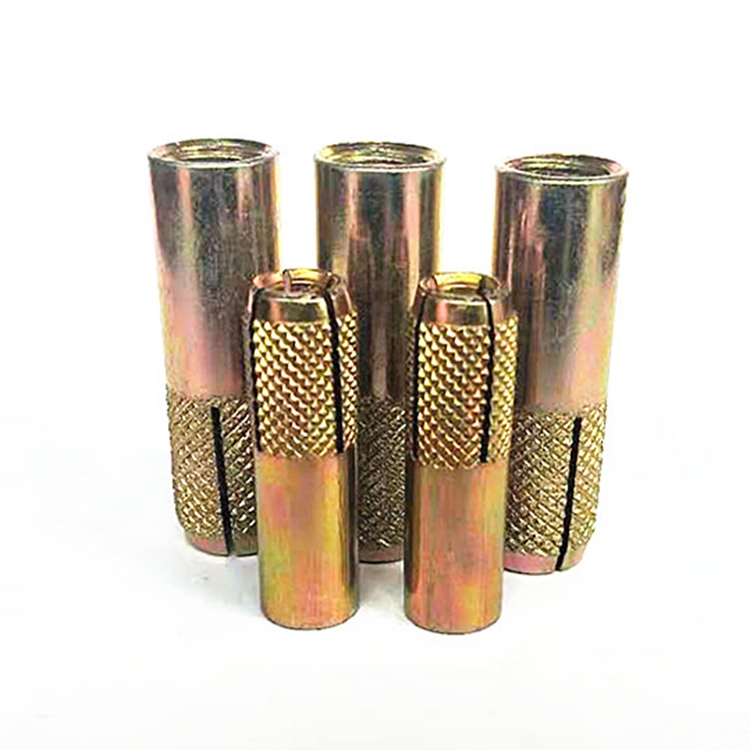Quality Manufacturers of 6-32 RMR Screws for Various Applications and Industries
Nov . 06, 2024 19:32 Back to list
Quality Manufacturers of 6-32 RMR Screws for Various Applications and Industries
Understanding 6-32% RMR Screws A Guide for Manufacturers
In the world of manufacturing and engineering, the precision and quality of components are paramount. Among these components, screws play a crucial role, serving as essential fastening elements in a myriad of applications. One specific type that has gained attention in various industries is the 6-32% RMR screws. This article aims to provide a comprehensive overview of these screws, focusing on their specifications, applications, and the importance of quality manufacturing.
What Are 6-32% RMR Screws?
The designation 6-32 refers to a specific screw size and thread count. 6 denotes the screw's nominal diameter, which is approximately 0.138 inches, while 32 indicates that there are 32 threads per inch. The term RMR typically refers to a particular style or finish of the screws, which may include modifications for corrosion resistance, strength, or aesthetic appeal. In this context, these screws are engineered to excel in specific applications where standard screws might falter.
Applications of 6-32% RMR Screws
The versatility of 6-32% RMR screws makes them suitable for a wide range of industries. Their applications include
1. Electronics Many electronic devices require secure fastening for their components. The precision of 6-32 screws aids in maintaining tight connections that are vital for performance.
2. Automotive In the automotive industry, screws must endure great stress and varying temperatures. 6-32% RMR screws are often used in interior fittings, engine components, and electrical assemblies due to their reliable performance.
3. Aerospace The aerospace sector demands the highest standards in quality and reliability. 6-32% RMR screws, often made from lightweight but strong materials, are crucial for assembling aircraft structures, where every component must meet stringent safety standards.
4. Consumer Goods From household appliances to furniture, these screws are prevalent in everyday products, ensuring stability and durability.
6-32 rmr screws manufacturer

The Importance of Manufacturing Quality
The manufacturing process of 6-32% RMR screws is critical to their performance. High-quality screws are made from robust materials, such as stainless steel, titanium, or specialized alloys that offer strength and resistance to wear. Here are some key factors to consider
1. Material Selection The choice of material affects not only the screw's strength but also its resistance to corrosion and temperature fluctuations. Manufacturers must select materials that align with the specific needs of the finished product.
2. Precision Engineering Manufacturing 6-32% RMR screws requires advanced machinery that can produce threads with precise tolerances. Any variance can lead to failure when the screws are subjected to load.
3. Surface Treatment To enhance the performance and longevity of screws, various surface treatments can be applied. This may include coatings that resist rust and corrosion or finishes that reduce friction.
4. Quality Control Rigorous quality assurance processes are essential in ensuring that each batch of screws meets industry standards. This includes dimensional inspections, material testing, and functional testing.
Conclusion
As industries continue to evolve, the demand for reliable and high-performing fasteners like the 6-32% RMR screws will only increase. Their specific characteristics make them suitable for a diverse range of applications, from electronics to aerospace. For manufacturers, the emphasis on quality in the fabrication of these screws will ensure that they not only meet but exceed the expectations of their clients.
In conclusion, understanding the intricacies of 6-32% RMR screws and their manufacturing process is crucial for anyone involved in industries that rely on fasteners. By fostering a commitment to quality and precision, manufacturers can contribute significantly to the safety, durability, and overall performance of the products they create.
Latest news
-
Trusted Wire Bolts Suppliers - Durable & Reliable Solutions
NewsAug.04,2025
-
Wire Bolts Company | Premium Industrial Fasteners
NewsAug.03,2025
-
Top Wire Bolts Suppliers | AI-Optimized Fast Delivery
NewsAug.02,2025
-
Top Metric Wood Screw Companies | Durable & Reliable
NewsAug.01,2025
-
Premium Lawn Mower Handle Bolts Supplier | Fast Delivery
NewsJul.31,2025
-
Premium Silver Screws Supplier | High-Conductivity Fasteners
NewsJul.31,2025
